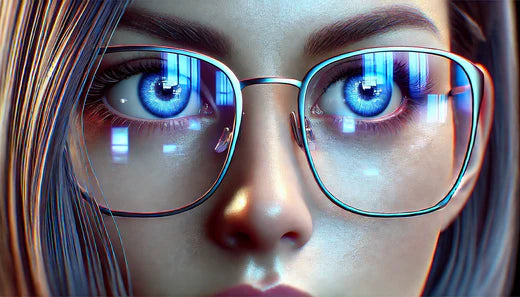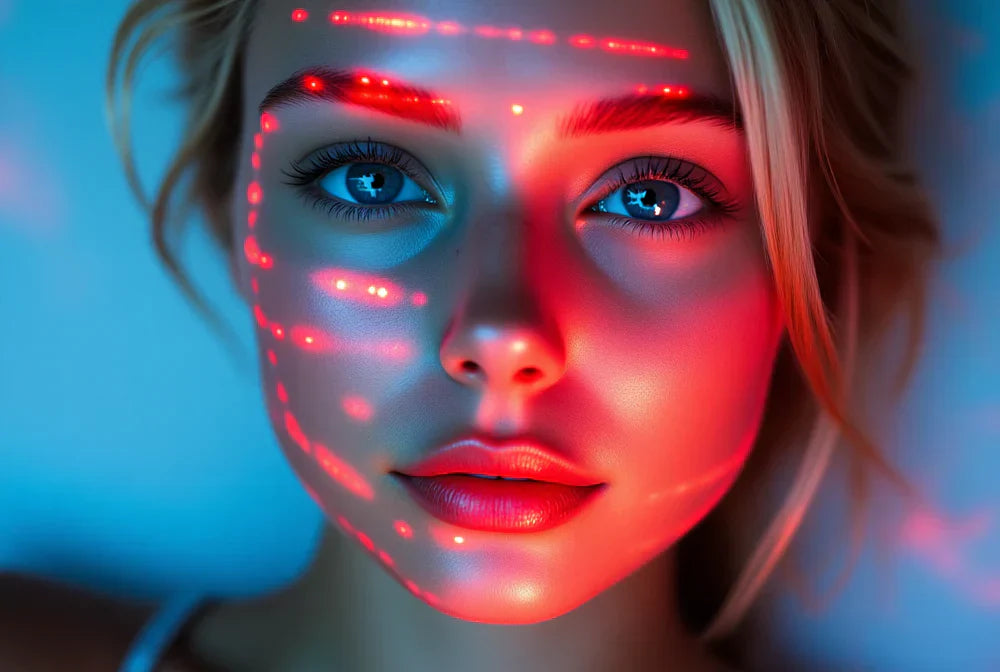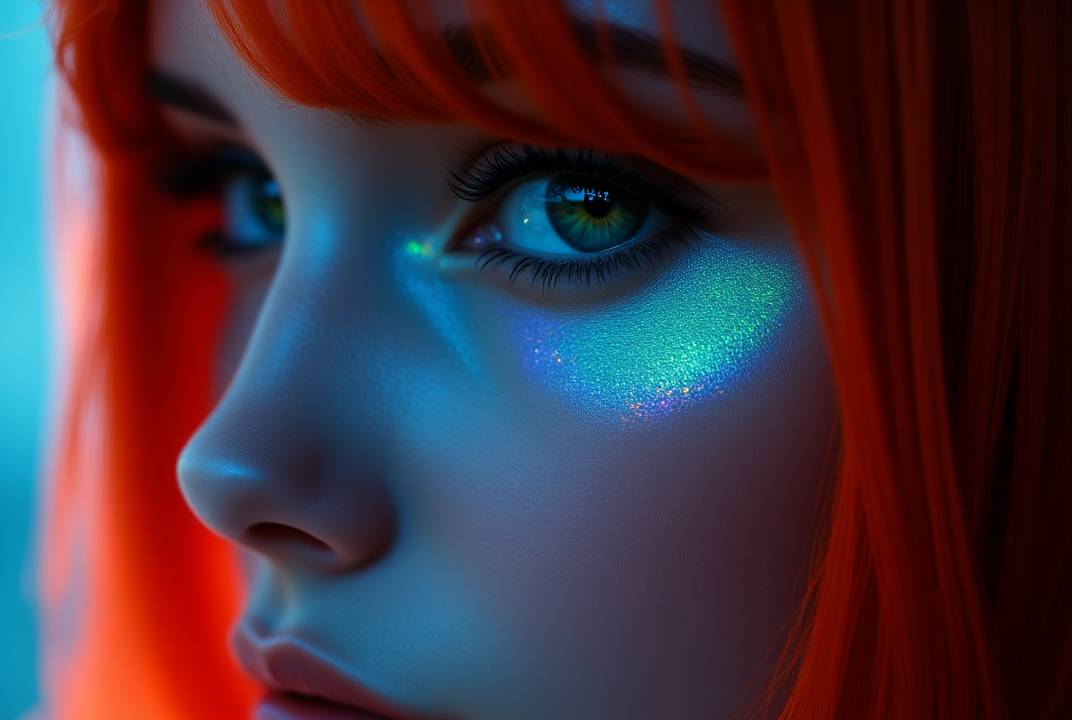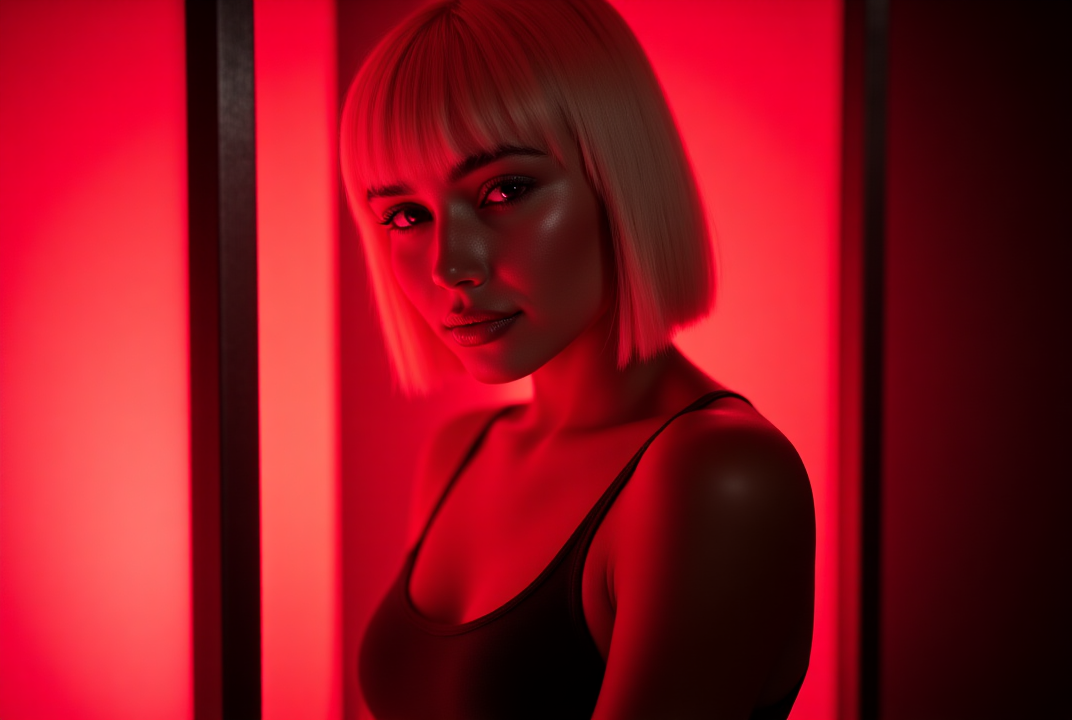The rise of blue light glasses has sparked a wave of interest among those eager to shield their eyes from the effects of prolonged screen exposure. However, as their popularity grows, so do questions about their use beyond digital interactions. Is it bad to wear blue light glasses when not looking at a screen? This article aims to unravel this query by examining the benefits and potential drawbacks of wearing these glasses in non-screen environments. By offering a balanced view, we hope to inspire informed choices that align with your eye health goals and personal style preferences.
What Are Blue Light Glasses?
Blue light glasses are specially designed eyewear intended to filter or block blue light emitted from digital screens, such as those on computers, smartphones, and tablets. Blue light is a high-energy visible light that can contribute to digital eye strain, disrupt sleep patterns, and potentially impact long-term eye health. These glasses typically feature lenses with a subtle tint or a special coating that reduces the amount of blue light reaching the eyes, thereby alleviating symptoms like eye fatigue, headaches, and disrupted sleep cycles. As a result, blue light glasses have become a popular choice for tech-savvy individuals, health-conscious consumers, and professionals who spend extended periods in front of screens, offering a proactive approach to maintaining eye comfort and wellness in our screen-centric world.
When Should Blue Light Glasses Be Worn?
During Screen Time
Wear blue light glasses when using digital devices like computers, smartphones, or tablets for extended periods. This helps reduce eye strain and fatigue caused by prolonged exposure to blue light, allowing for a more comfortable and productive experience.
In the Evening
Consider wearing blue light glasses in the evening, especially if you're using screens before bedtime. This can help minimize the disruption of your natural sleep cycle by reducing blue light exposure, which can interfere with melatonin production and affect the quality of your sleep.
Under Artificial Lighting
If you spend time in environments with high levels of artificial lighting, such as LED or fluorescent lights, blue light glasses can help mitigate the effects of blue light exposure. This provides additional comfort for your eyes, reducing strain and enhancing visual clarity.
During Work or Study Sessions
For professionals and students who engage in long work or study sessions, wearing blue light glasses can help maintain focus and reduce the risk of headaches and eye discomfort associated with screen use. This ensures that your eyes remain comfortable and your productivity stays high.
As a Preventive Measure
Even if you're not currently experiencing symptoms of digital eye strain, wearing blue light glasses can serve as a preventive measure. They help protect your eyes from potential long-term effects of blue light exposure, ensuring sustained eye health and comfort over time.
Is It Bad To Wear Blue Light Glasses When Not Looking At a Screen?
Wearing blue light glasses when not looking at a screen is generally not harmful, but it may not provide any additional benefits either. These glasses are specifically designed to filter blue light, which is predominantly emitted by digital screens and certain artificial lighting. When you're not exposed to these sources, the primary function of the glasses becomes redundant. However, wearing them as a fashion accessory or out of habit poses no risk to your eye health. It's important to note that while they don't impair vision or cause discomfort, they also don't enhance eye protection in non-screen environments. Therefore, whether you choose to wear them during screen breaks or as part of your style is largely a matter of personal preference, without adverse effects on your eye health.
Are Blue Light Glasses The Same As Sunglasses?
Blue light glasses and sunglasses serve distinct purposes and are not the same. Blue light glasses are designed to filter or block blue light emitted from digital screens and artificial lighting, aiming to reduce eye strain, fatigue, and potential sleep disruption caused by prolonged exposure to this specific light spectrum. In contrast, sunglasses are crafted to protect the eyes from the sun's ultraviolet (UV) rays and reduce glare, thereby preventing damage from UV exposure and enhancing visual comfort in bright outdoor environments. While both types of eyewear contribute to eye health, they address different needs and conditions. Blue light glasses are optimized for indoor use with digital devices, whereas sunglasses are essential for outdoor protection against sunlight.
Can Blue Light Glasses Be Prescription Glasses?
Yes, blue light glasses can indeed be prescription glasses, combining vision correction with blue light filtering technology. Many eyewear providers offer the option to add a blue light filter to prescription lenses, allowing individuals who require corrective lenses to simultaneously protect their eyes from the effects of blue light exposure. This dual functionality is particularly beneficial for those who spend significant time in front of screens, as it addresses both vision correction needs and the reduction of digital eye strain. By integrating blue light protection into prescription glasses, users can enjoy enhanced visual clarity and comfort, making it a convenient and effective solution for maintaining eye health in a digital world.
Common Misconceptions About Blue Light Glasses
- Blue Light Glasses Cure All Eye Problems: A common misconception is that blue light glasses can solve all eye-related issues. While they help reduce digital eye strain and improve comfort during screen use, they are not a remedy for underlying vision problems or eye diseases, which require professional medical attention.
- They Block All Blue Light: Some people believe that blue light glasses completely block all blue light. In reality, these glasses are designed to filter out a portion of blue light, particularly the high-energy wavelengths that are most likely to cause eye strain and sleep disruption.
- Only Necessary for Screen Users: Many assume that blue light glasses are only beneficial for those who use screens extensively. However, they can also be useful in environments with artificial lighting, which can emit blue light, providing broader protection beyond just digital devices.
- Wearing Them All the Time is Harmful: There's a misconception that wearing blue light glasses when not using screens can be harmful. In truth, while they may not offer additional benefits in non-screen environments, they do not negatively impact eye health or vision.
- They Instantly Improve Sleep: Some believe that simply wearing blue light glasses will immediately enhance sleep quality. While they can help by reducing blue light exposure that interferes with melatonin production, other factors like screen habits and sleep hygiene also play crucial roles in achieving restful sleep.
How Do You Choose The Right Blue Light Glasses For Your Needs?
Choosing the right blue light glasses involves considering your specific needs, such as the amount of screen time you engage in, the type of lighting you are exposed to, and any particular vision requirements you may have. Look for glasses that offer a balance between style, comfort, and functionality, ensuring they effectively filter out the high-energy blue light that can cause eye strain and disrupt sleep. It's also important to verify the efficacy of the lenses, ideally supported by scientific testing or endorsements. For those seeking the pinnacle of blue and green light protection, the EMR-TEK Wolverine Nighttime Eyeglasses offer an exceptional solution. These glasses not only feature luxurious 24K gold-plated frames but also provide comprehensive protection by blocking both blue and green light, safeguarding your melatonin levels and promoting restful sleep.
Conclusion
In conclusion, blue light glasses have emerged as a valuable tool in our increasingly digital world, offering protection and comfort for those who spend significant time in front of screens. While they are not a panacea for all eye-related issues, their ability to reduce digital eye strain and support better sleep hygiene makes them a worthwhile investment for tech-savvy individuals, health-conscious consumers, and style enthusiasts alike. Understanding when and how to use these glasses can empower you to make informed decisions that align with your lifestyle and eye health goals. Whether you're considering them for their functional benefits or as a fashion statement, blue light glasses can be a proactive step toward enhancing your overall well-being in a screen-centric environment.
Final Thoughts
Curious about how to protect your eyes from digital strain while enhancing your overall health? At EMR-TEK, we offer innovative solutions where cutting-edge technology meets everyday convenience. Whether you're in search of a compact, portable device for seamless integration into your busy lifestyle or a comprehensive system for home or professional use, we have the perfect solution for you. Blue light glasses can be a vital part of your wellness toolkit, helping to alleviate eye fatigue. Explore our extensive range of red light therapy products and take a decisive step towards achieving your health and beauty goals.
Sources
- https://rx-safety.com/2020/02/prescription-glasses-blue-light-filter
- https://www.rudyprojectna.com/blogs/news/the-critical-need-for-uv-protection-in-sunglasses
- https://en.wikipedia.org/wiki/Glasses#Blue-light_blocking_glasses
Disclaimer*: EMR-TEK’s red infrared light therapy devices, blue light blocking glasses, and other products are intended solely for personal wellness and fitness use. They are not designed to diagnose, treat, cure, or prevent any disease and should not be considered medical devices. We do not make any therapeutic claims. Our products align with the FDA’s “General Wellness: Policy on Low Risk Devices” guidelines and do not require FDA clearance. Please note, EMR-TEK’s products are for personal use only and not for commercial application.*




Share:
How Much Is Red Light Therapy: Red Light Therapy Cost
How To Depuff Face: Methods For Reducing Facial Puffiness